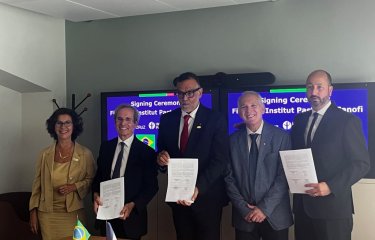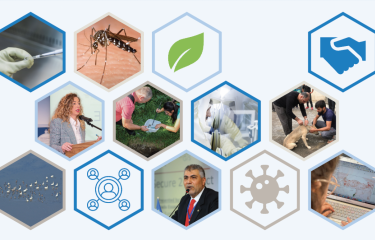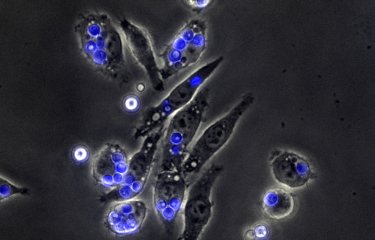The 4-year research group (G4) led by Dr. Cheikh Loucoubar has officially joined H3ABioNet, the largest bioinformatics network on the African continent, as the new node for West Africa.
Created 5 years ago, H3ABioNet is composed of 32 teams based in 15 African countries. On the occasion of its five-year renewal, it expands today to new partners. During the first phase of the project, a much better adapted DNA chip for genotyping African populations has been developed and will be available soon. Compared to what previously existed, this chip was designed with a wider coverage of different African ethnic groups; it will generate a greater number of genetic polymorphisms.
"Thanks to our expertise, we will contribute to the exploitation of this data" explains Cheikh Loucoubar. "Becoming a partner of this very large consortium is for us a real recognition of the work done to develop bioinformatics in Senegal". Created in 2015, the G4 of Biostatistics, Bioinformatics and Modeling develops statistical methods to exploit genomic data and identify factors involved in various infectious diseases.
The G4 of the Institut Pasteur in Dakar is the 4th team of the Institut Pasteur International Network to integrate the panafrican network H3ABioNet while teams from the CERMES (Niger), the Institut Pasteur de Tunis and Institut Pasteur du Maroc were already members.
H3ABioNet aims to develop bioinformatics on the African continent in order to support research projects from a wider network "Human Heredity & Health in Africa" (H3Africa). Funded by NIH and the Wellcome Trust, H3Africa's goal is to create and support an African network of advanced laboratories dedicated to studying the complex interactions between environmental factors and genetic factors that determine disease susceptibility and response to drugs in African populations.





